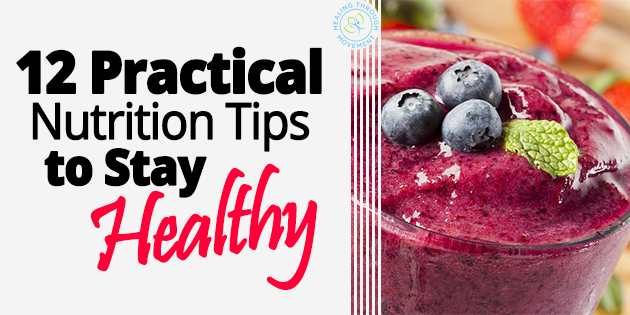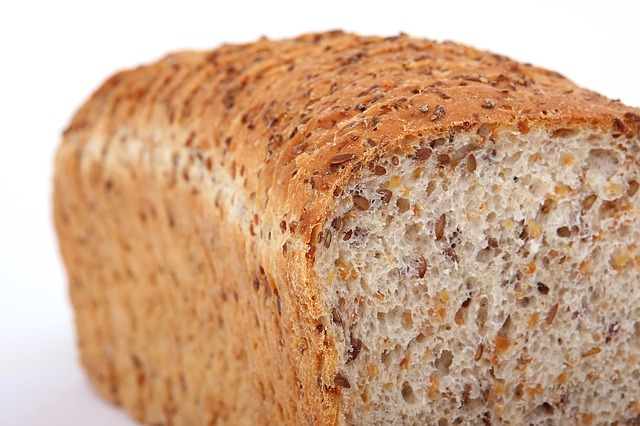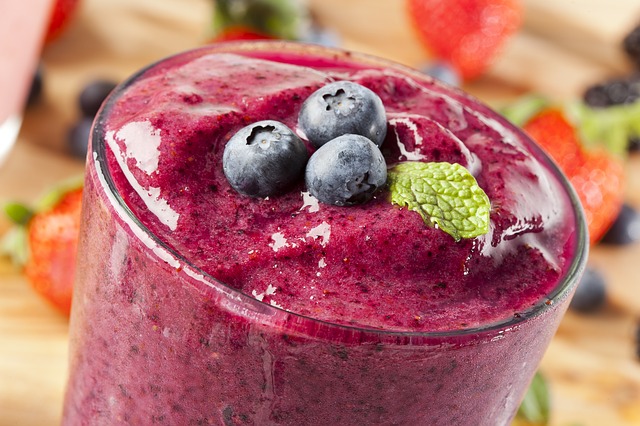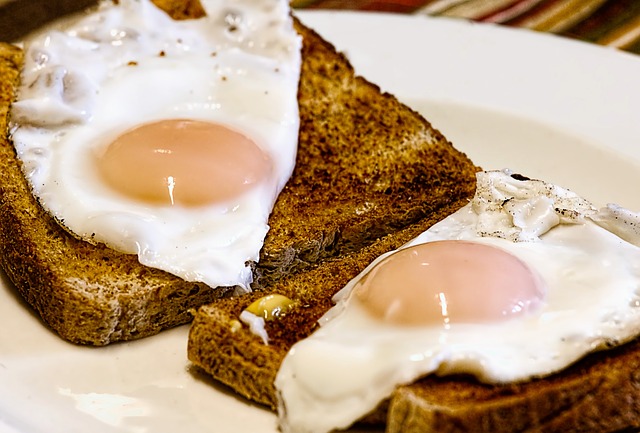Many people struggle with maintaining a healthy weight and observing the right nutrition. With today’s fast-paced lifestyles where most meals are grabbed on the go or eaten at the work desk, integrating healthy choices can be a challenge.
However, a balanced diet and a healthy lifestyle never go out of style. Observing good wellness practices helps to ensure that the body can combat the effects of stress or the effects of exposure to free radicals in the environment. It delays aging and keeps you in top form, ready to face daily activities.
Here are some practical nutrition tips to stay healthy despite busy schedules:
- Choose the right carbohydrates
Grabbing a bagel for breakfast or a large hamburger for lunch may seem like the most convenient choices. But these foods are packed with added sugars, refined carbohydrates, and saturated fat.
Learn to choose carbohydrates that are rich in starch or fiber. Starchy carbohydrates contain lesser calories but help to keep you feeling satiated for a longer period. Instead of that bagel, toast a few slices of wheat bread, or have a cup of oatmeal for breakfast.
The trick is to substitute the white, refined carbohydrates for whole grains such as oats, wheat, or quinoa. In addition to fiber, these also contain B vitamins, magnesium, and calcium. They provide vital nutrients that the body needs.
Another good alternative is boiled or steamed sweet potatoes. Unlike regular potatoes, they contain anti-inflammatory properties which prevent a lot of health issues.
- Eat colorful fruits and vegetables
Nutritionists recommend eating at least five portions of fruits and vegetables every day. Opt for those with darker colors because they have more antioxidants that fight against inflammation and damage from free radicals.
Chop a banana, or slice some apples or strawberries and add these to the cup of oatmeal for breakfast. Skip the chocolate cookies during snack periods and replace these with some fresh fruits like strawberries, kiwi, or grapefruit.
It is also practical to prepare colorful salads ahead of time and stock these in the refrigerator to be eaten during dinner.
- Avoid juicing fruits
Juicing may be a fad and it appears to be the fastest way to absorb vitamins and nutrients from fruits. However, the process of converting the fruit to juice strips it of its essential fiber and nutrients. What is left are huge amounts of sugar. When absorbed, the fruit juices or smoothies cause an upsurge in insulin and blood sugar levels which do not occur when servings of fruits are taken in their natural form. Thus, regularly consuming fruit juices increases the risk of developing type 2 diabetes.
Fruit juices could never deliver the same nutritional values that whole fruits contain. So, avoid that glass of orange juice and have a serving of the real fruit instead!
- Eat more fish
Fish is an ideal source of protein. It also contains several vitamins, minerals, and essential fatty acids. Oily fish varieties are particularly preferred because of their high omega-3 fats and vitamin D contents which help to prevent heart disease and promote brain functions. Some of the best types to consume include salmon, fresh tuna, sardines, mackerel, herring, and trout.
To get the most benefits from fish, consume at least 2 portions per week. It is best to choose fresh fish over canned or smoked fish which may contain added preservatives and salt. When preparing the fish, opt to grill or steam rather than to fry it. Also, avoid ordering breaded fish at restaurants because the breading mix could be loaded with added sugars.
- Have eggs for breakfast
Eggs are some of the most nutritious food and must be included in your diet. They are packed with vitamins, minerals, proteins, and healthy fats. They have high concentrations of Vitamin B12, B2, B5, A, and E. They are also rich in minerals such selenium, calcium, iron, potassium, and folate. It is noteworthy that most of these nutrients are found in the egg yolk.
Contrary to the perception that egg yolks should not be eaten because of their cholesterol content, some studies have found that consuming eggs actually does not affect the blood cholesterol in most people and has no correlation with the risks of heart disease. In fact, several investigations have found that eggs improve a person’s cholesterol profile. They also improve insulin sensitivity and promote weight loss.
It is good advice to add a poached or scrambled egg to some toast at breakfast and benefit from its rich nutritional content.
- Stock up on nuts and seeds
Studies have shown that tree nuts are loaded with healthy fats, antioxidants, and fiber that are beneficial to your health. They can help to lower cholesterol and blood pressure levels. Nuts contain omega-3 fatty acids that reduce the risk of developing breast cancer and type 2 diabetes. In several studies, it was found that eating nuts does not contribute to weight gain and can, in fact, boost the metabolism.
The best choices of nuts include brazils, pistachios, cashews, and almonds.
Seeds are also good additions to meals or snacks. Ground flaxseeds have been shown to reduce blood pressure, blood sugar, and cholesterol levels. They also improve artery functions.
It is also ideal to add some chia seeds to dishes. Chia seeds can reduce inflammation, blood pressure, and blood sugar. They also help to lower your weight.
- Reduce intake of saturated fats and added sugars
A lot of food items contain saturated fats which increase cholesterol levels that contribute to weight gain. These include butter, lard, pastries, cookies, and processed cheese.
As much as possible, cut down on saturated fat intake and replace these common products with healthy sources of fats such as vegetable oils, oily fish, avocados, and nuts.
Added sugars should also be avoided. Too much sugar in the diet increases the risk of developing type 2 diabetes, obesity, cardiovascular disease, and tooth decay. Added sugars are also largely to blame for weight gain.
Stay away from food that contains refined sugar such as cakes, pastries, desserts, and junk food. Beverages that are high in sugar such as soda, packaged fruit juices, and alcoholic mixes should also be avoided.
- Eat less salt
A high salt intake puts you at an increased risk of developing hypertension, cardiovascular disease, and stroke. It is also linked to other medical conditions including stomach cancer, kidney diseases, osteoporosis, and obesity.
The World Health Organization recommends that adults consume only a maximum of 5 grams of salt a day. However, most people are not aware that they are eating more salt than they realize. Several packaged food products such as cereals, bread, snacks, processed meats, and condiments contain large amounts of salt.
Cut down on salt by reading food labels and avoiding items that have high sodium content. To add flavor to meat or salads, replace the salt with herbs, spices, lemon juice, olive oil, mustard, or vinegar. It is just a matter of training the taste buds to become accustomed to other flavors. By introducing gradual changes to meals, you eventually become accustomed to less salt.
- Drink more water
According to some studies, drinking even 2 tall glasses of water can improve the body’s metabolic rate. It is estimated that increasing the daily water intake by as much as 1.5 liters can help to burn an additional 17,000 calories in a year. Thus, a person can lose weight by simply drinking more water.
Water is also important to stay hydrated during the warm seasons or after performing physical exercise.
Aim for a minimum of eight glasses of water a day and make sure to avoid sugary drinks including unsweetened juices and alcoholic beverages. Drink clear, unadulterated water.
- Don’t skip breakfast
Skipping breakfast is one of the worst weight-loss practices. Time and again, it has been said that breakfast is the most important meal of the day. Eating a healthy breakfast provides the energy boost needed for the day’s activities. To lose weight, you don’t have to skip major meals but instead, choose the right food groups to keep feeling satiated.
Prepare healthy breakfast meals such as wholegrain cereals topped with fruits or slices of toast with an egg and some fruit on the side. Choose food that is rich in fiber and vitamins to start off the day.
- Incorporate physical activities in daily routines
Getting a gym or health club membership may be impractical for some people who lead very busy lives and can’t spend time in the gym. It is good to know that you don’t necessarily have to invest long hours on the treadmill to lose some pounds. A practical way of incorporating aerobic activities is by skipping the elevator and to climb a flight of stairs, or getting off the bus at a different stop to walk the rest of the way.
Physical exercises are good for both the body and the mind. It reduces the risk for several physiological diseases including heart disease, diabetes, and cancer. It also energizes the mind to keep you focused and alert.
- Track meal sizes and food options when eating out
A lot of people find it difficult to stay on their diet especially when they eat at restaurants with friends who may not be observing the same lifestyle. You don’t have to give up friendships just to stay healthy. A person’s body is their own responsibility and you must learn to make the right choices even when eating out.
A simple trick is to drink a glass of water before the meal. This will immediately make you feel full which will prevent consumption of large portions. When ordering, choose meals wisely. Go directly to the “fish and seafood” or “vegetables” part of the menu and select dishes that have the most nutritional value. When these are not available, as when eating at pizza or pasta parlors, then choose those that have lesser fats or carbohydrates. Avoid toppings of ham or bacon but opt for tomatoes or other vegetables instead.
An obvious tip is to eat smaller servings. Cut up the meal into half and have the rest stored in a “to-go” box so you are not tempted to eat the entire meal while chatting away with friends.
When eating at buffets, scan the entire selection first and decide to scoop up servings of healthier choices such as fish, lean meat, vegetables, and fruits. While you may have to go through the line, you don’t necessarily have to take portions from every available dish.
Staying on a diet even when eating out is still possible for as long as you are determined to make the right choices.
Staying healthy doesn’t have to be difficult. You only have to be conscious of daily practices and wellness choices. It may help to download an app to track the meals and snacks being consumed. This will keep you focused on observing good nutrition.
Eating a balanced diet regularly and maintaining an active lifestyle is crucial to maintaining an ideal weight and avoiding complicated medical conditions. When in doubt as to the right choices, consult a dietician or other health professional and seek advice regarding the appropriate meal plans or exercises necessary to meet your health needs.
If you want to know what foods will help you shape up and shed inches while providing natural cure to illnesses, then check out the Best Foods That Rapidly Slim & Heal In 7 Days program.







